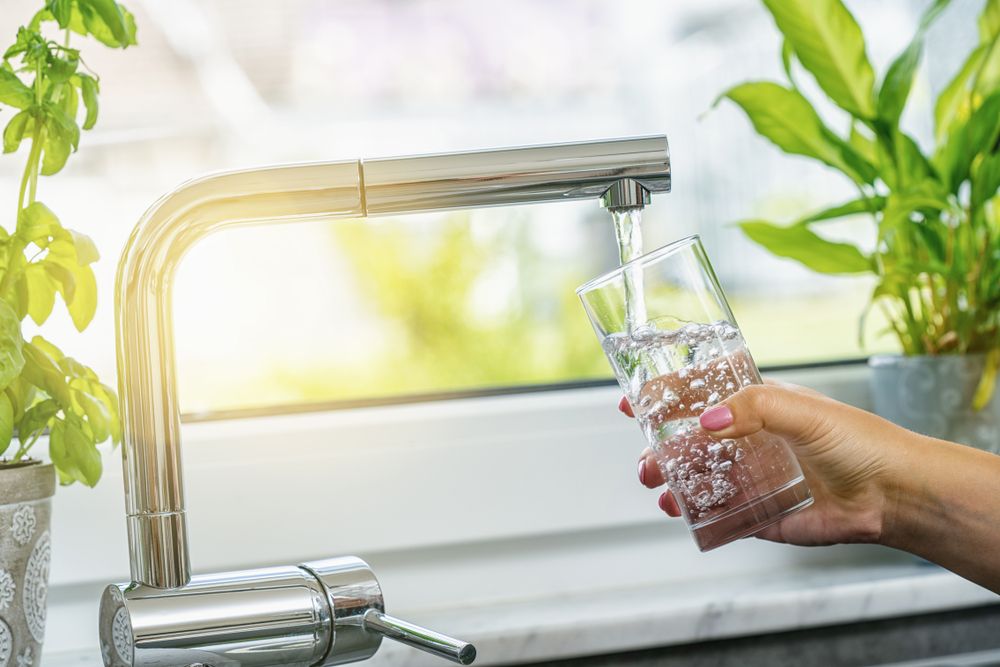Clean drinking water is one of the most basic human needs. Yet in many parts of the world water quality is under constant attack from pollutants, industrial waste, agricultural runoff and old infrastructure. According to the World Health Organization 2 billion people globally drink water with feces in it and millions more are exposed to harmful chemicals like lead, arsenic and pesticides every day.
And our water consumption comes with a hidden environmental cost — especially the bottled water habit. Each year 500 billion plastic bottles are produced worldwide and less than 30% of them are recycled. The rest end up in landfills, incinerators or — worst of all — in our oceans and rivers where they break down into microplastics that enter the food chain.
That’s where whole house water filtration systems come in. By treating all the water that enters a home these systems not only protect human health but also reduce the environmental impact of water consumption.
Why Whole House Filtration Matters
Most people think of water filters as something attached to a kitchen faucet or placed inside a pitcher in the fridge. While these solutions are helpful, they only address the water you drink — not the water you use for cooking, bathing, washing dishes, or doing laundry.
Whole house filtration ensures that every tap, shower, and appliance in the home delivers clean water. This is particularly important because many contaminants don’t just harm you when swallowed — they can be absorbed through the skin or inhaled in steam during showers. Chlorine, for example, can irritate skin and lungs, while heavy metals like lead can accumulate in the body over time, causing serious health problems.
A high-quality whole house system also helps protect home appliances, plumbing, and fixtures by preventing scale buildup, rust, and corrosion — extending their lifespan and reducing maintenance costs.
The impact of water quality on daily life
Clean water influences not only physical health but also everyday quality of life. Using purified water for cooking, making coffee or tea, or even watering plants ensures a fresher, more natural taste without unpleasant odors. Laundry washed in water free from heavy metals and chemical residues retains its colors, texture, and softness for longer. In this way, a whole house filtration system is not just a safeguard — it’s a real upgrade to the comfort and enjoyment of daily living.
Environmental Benefits of Eco-Friendly Filtration
From a sustainability perspective, eco-friendly filtration systems offer benefits far beyond individual health:
- Reducing Plastic Waste – By eliminating the need for bottled water, they prevent thousands of plastic bottles per household from entering the waste stream each year.
- Lowering Carbon Footprint – Bottled water production and transportation are energy-intensive. A single liter of bottled water can require up to 2,000 times more energy to produce than tap water.
- No Electricity Consumption – Many eco-friendly systems are gravity-based or use water pressure alone, which means zero ongoing energy use.
- Long-Lasting Filtration Media – Advanced systems can operate for years before needing replacement filters, reducing waste and costs.
The Hidden Dangers in Unfiltered Tap Water
Unfiltered tap water can contain a range of contaminants depending on your location. Common issues include:
- Chlorine and Chloramine – Used for disinfection, but can create harmful byproducts.
- Lead and Copper – Often from old pipes and plumbing fixtures.
- Pesticides and Herbicides – From agricultural runoff.
- Microplastics – Tiny particles from degraded plastics, increasingly found in municipal water supplies.
- Bacteria and Viruses – Especially in areas with outdated or poorly maintained infrastructure.
Long-term exposure to these contaminants can cause health issues ranging from gastrointestinal problems to developmental delays in children, hormonal disruption, and increased cancer risks.
Choosing the Right System
Not all filtration systems are created equal. When choosing one, households should look for:
- Comprehensive Contaminant Removal – Systems should target not only sediments but also chemicals, heavy metals, and biological contaminants.
- Certified Performance – Look for NSF/ANSI certifications to ensure the system meets strict standards.
- Eco-Friendly Design – Minimal waste, no electricity usage, and long-lasting filters.
- Mineral Retention – Good systems remove harmful substances while keeping beneficial minerals like magnesium and calcium.
Long-term financial benefits
While the upfront investment in a whole house filtration system may seem significant, the long-term savings often outweigh the initial cost. Households can save money by avoiding bottled water purchases, reducing plumbing repairs, extending the life of appliances, and even lowering healthcare expenses linked to waterborne contaminants. Over time, these savings can make an eco-friendly filtration system not just a sustainable choice, but a financially smart one as well.
One example is whole house water filtration systems that are tested and certified to remove harmful impurities without electricity, while maintaining essential minerals in the water. These systems combine performance, sustainability, and long-term cost savings, making them an ideal choice for households that value both health and the environment.
Supporting local ecosystems
Beyond the global benefits of reducing plastic waste, eco-friendly filtration systems can also help protect local ecosystems. By removing harmful substances before water enters municipal wastewater or septic systems, these systems reduce the load of chemicals, heavy metals, and microplastics that could otherwise find their way into rivers, lakes, and groundwater. This not only safeguards biodiversity but also contributes to cleaner, healthier environments for communities and wildlife alike.
Case Study
In a recent community project in California, an entire neighborhood replaced their outdated water treatment setup with eco-friendly whole house filtration. Over the course of a year:
- Residents reported improved water taste and fewer skin irritations.
- Household plastic waste from bottled water dropped by over 80%.
- Appliance maintenance costs decreased thanks to reduced scale buildup.
This demonstrates that the benefits of whole house filtration extend beyond individual households, positively impacting community health, waste reduction, and sustainability.
A Step Toward a Sustainable Future
Water is life — and protecting it is essential for the health of both people and the planet. Eco-friendly whole house water filtration is more than just a home upgrade; it’s a conscious decision to reduce waste, protect ecosystems, and ensure safe water for generations to come.
Clean water should never be a luxury. With the right technology, it can be a sustainable reality for everyone — today and in the future.




